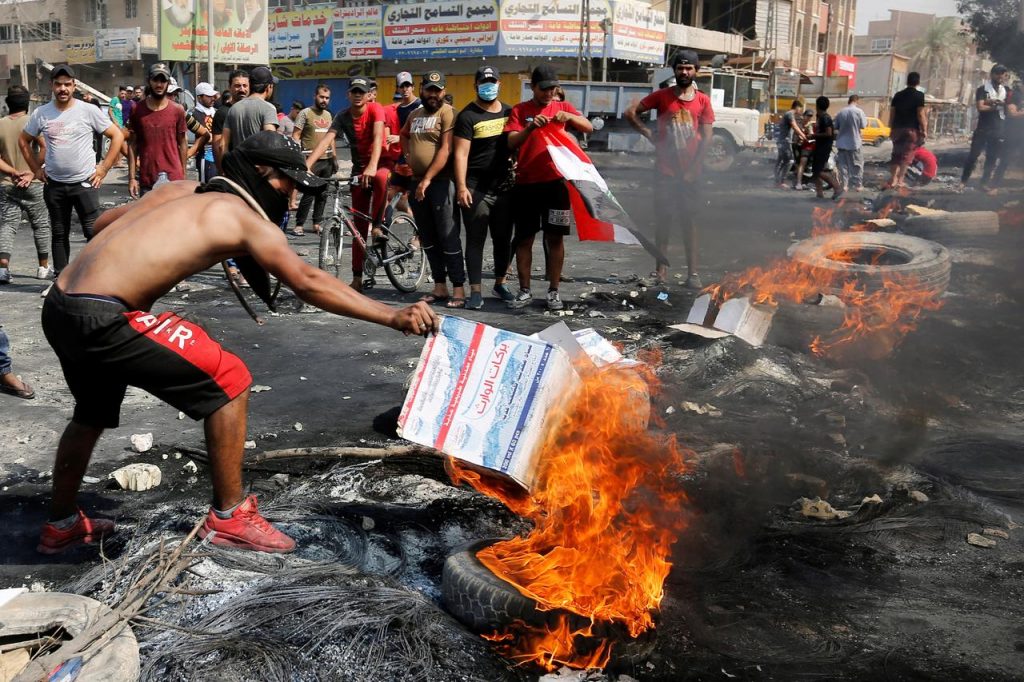
- ARAB NEWS
- 27 Aug 2025

One of the core aims of the 1979 Iranian Revolution was to ensure the Islamic Republic’s influence across the Middle East by exporting its ideals and principles beyond Iran’s borders. In fact, the theocratic establishment incorporated this critical mission into its constitution as the preamble, which states: “The mission of the constitution is to create conditions conducive to the development of man in accordance with the noble and universal values of (Shiite) Islam.”
It adds that the Iranian constitution “provides the necessary basis for ensuring the continuation of the revolution at home and abroad.”
To achieve this, the Iranian leaders began building alliances with Shiite communities in other nations. At first, Tehran projected itself as an ally that was coming to the aid of those communities and helping to improve their living standards and political rights. But the Islamic Republic’s aims were not to provide social welfare programs to the ordinary people in the long term; rather it wanted to create and strengthen armed proxies that would serve its parochial and geopolitical interests.
For example, in Lebanon, the Islamic Revolutionary Guard Corps and its elite Quds Force transformed Hezbollah into one of Iran’s most important and powerful proxies by providing financial, military, intelligence, logistical and advisory assistance. Even Hezbollah’s leader, Hassan Nasrallah, has confirmed that his group receives monetary and arms support from the Iranian government. He said in a speech in 2016: “We are open about the fact that Hezbollah’s budget, its income, its expenses, everything it eats and drinks, its weapons and rockets, come from the Islamic Republic of Iran.”
In Iraq, instead of improving the lives of the ordinary people in Shiite communities, Iran invested in creating a conglomerate of militias known as the Popular Mobilization Forces. These proxies and armed groups not only serve the interests of the Iranian regime over those of the Iraqi people, but have also created conflict by engaging in various crimes against civilians.
Now, after almost four decades, it seems that Shiite communities in several countries have become disillusioned with the ideals of the Islamic Republic. For instance, in Lebanon, the latest protests have unexpectedly spread to Hezbollah strongholds in the south of the country and in Beqaa. The protesters have even attacked the offices of Shiite deputies such as Mohammad Raad, president of the Hezbollah parliamentary group, and Hani Kobeissi and Yassine Jaber of the Amal party.
Astonishingly, Hezbollah — which has generally projected itself to be on the side of the Lebanese people, always prepared to come to the ordinary people’s aid and opposed to the government — has been attempting to quash the protests. In fact, Nasrallah has sided with the government by declaring that he is opposed to any Cabinet members resigning. The Hezbollah leader said in a televised speech: "If this government resigns, we won't have a new one for a year or two."
Hezbollah has significant control over Lebanon’s current Cabinet, which is why Nasrallah added: “Let this government continue but with a new spirit and new way of working and let it learn its lessons from the last two days of popular outburst.”
The important fact about the protests in Lebanon is that the Lebanese people were not differentiating between the various sectarian political groups when they shouted: “The government is corrupt, the sectarian leaders are corrupt, all members of Parliament are thieves — thieves, thieves, thieves.” People even named almost every senior Lebanese politician, chanting
“Thieves, thieves… All of them, and Nasrallah is one of them.”
Similarly, in Iraq, the latest protests have erupted mainly in Shiite provinces.
The cross-sectarian character of the protests and widespread discontent with the leaders in Lebanon and Iraq — across the political and religious spectrums — highlights the Shiite communities’ frustrations and disaffectedness with the Iranian regime and its proxies.
The structure and nature of proxies generally reflect the system that sponsors them. If the sponsor, in this case the theocratic establishment of Iran, is filled with widespread corruption and crimes, its proxies will be too. And, just like the Iranian regime, Tehran’s proxies have become skilled at exploiting religion and using sectarianism as a tool to gain power and further their parochial, religious and political ambitions.
Dr. Majid Rafizadeh is a Harvard-educated Iranian-American political scientist. He is a leading expert on Iran and US foreign policy, a businessman and president of the International American Council. Twitter: @Dr_Rafizadeh